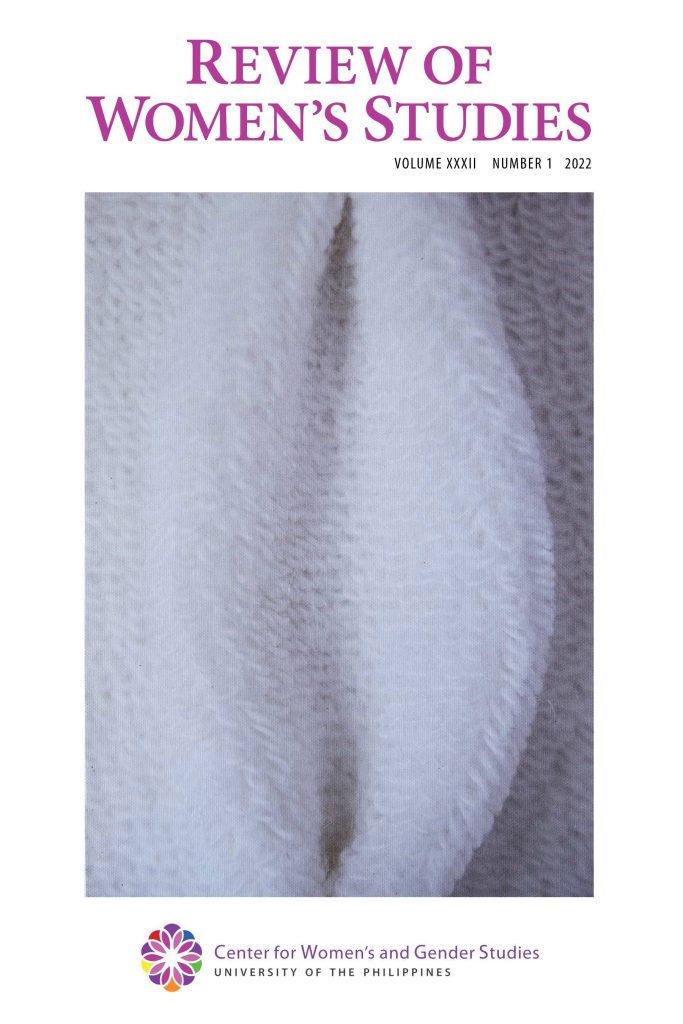Impacts of the COVID-19 Pandemic on Women in the Informal Economy in Quezon City
Abstract
Women in the informal economy are suffering compounded burdens as the overwhelming impacts of the coronavirus (COVID19) pandemic exacerbate their pre-existing vulnerabilities.This paper articulates the realities and experiences of women in the informal economy in Quezon City based on the findings from the study, Impacts of the COVID-19 Pandemic on Women in the Informal Economy in Quezon City. The study was conducted by the UP Institute for Small-Scale Industries (UP ISSI) from February to August 2021. It employed mainly qualitative methodology, which included key informant interviews (KIIs), focus group discussions (FGDs), and a survey. Descriptive statistics (frequency and average) were used in processing the survey results. The primary respondents were 248 women members of three associations of informal workers in Quezon City, namely: the Pambansang Kalipunan ng mga Manggagawang Impormal sa Pilipinas (PATAMABA), Inc.; the Metro Manila Vendors Alliance (MMVA); and the Samahang Manininda sa UP Campus, Inc. (UP Manininda).
The results of the study highlighted the gendered impacts of the COVID-19 pandemic on women in the informal economy; these impacts are manifested in their economic security, in their families, and in their health and overall well-being. The pandemic had caused total closure of enterprises, loss of livelihood, and a significant drop in incomes. With reduced earnings, these women could not adequately feed their families, resulting in a high incidence of hunger among their households. Because of the no-face-to-face-classes policy, some of them had to stop working to supervise their children in their studies while others simply had to juggle both tasks, forcing them to multitask and reduce their hours of sleep. As informal work does not provide these women with social benefits, they had to rely on other means, i.e., using their capital for their household expenses, taking on additional sources of income, starting a new business, and multitasking, among others. While these coping strategies have shown their resilience and resourcefulness, they have also taken a toll on their overall well-being, leaving them physically exhausted, psychologically distressed, and financially insecure. Their own organizations played a crucial role in supporting these women and assisting their enterprises/livelihoods in the form of marketing assistance, cash assistance, representation, and capacity building.
Despite the multiple challenges, women in the informal economy have shown resilience - on both the individual and community level - during this pandemic. While this study reinforces what existing literature states about the gendered impacts of disasters, it also gives equal emphasis to the agency and leadership of women in the informal economy. When provided a supportive environment, proper tools, and ample opportunities, women in the informal economy can come up with innovative solutions that will help them and their enterprises/livelihoods thrive through this crisis, as well as lead in building sustainable and resilient communities.
Published
2023-05-12
How to Cite
CABOTAJE, Melanie V. et al.
Impacts of the COVID-19 Pandemic on Women in the Informal Economy in Quezon City.
Review of Women's Studies, [S.l.], v. 32, n. 1, may 2023.
ISSN 0117-9489. Available at: <https://journals.upd.edu.ph/index.php/rws/article/view/9110>. Date accessed: 27 aug. 2025.
Section
Articles


